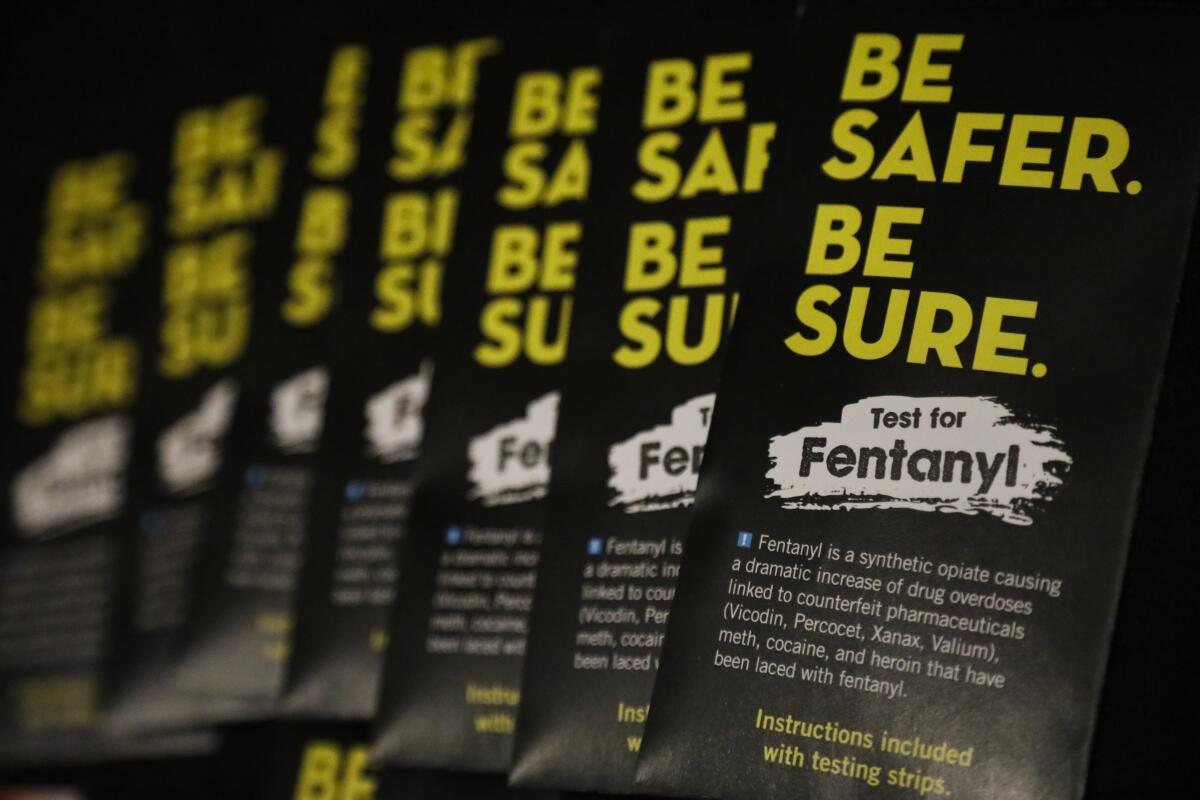What is fentanyl, the drug potentially linked to Colt Brennan’s death?

Authorities investigating the death of former Hawaii quarterback Colt Brennan found indications that he had ingested something laced with fentanyl. If the initial findings are confirmed, Brennan would be the second local athlete with a recent death linked to the opioid.
Former Angels pitcher Tyler Skaggs died in July 2019 after choking on his vomit, with an autopsy finding that drug, along with oxycodone and ethanol, in his system. Eric Kay, former director of communications for the Angels, was indicted last October for distributing a controlled substance resulting in Skaggs’ death and possessing fentanyl with the intent to distribute.
Fentanyl, first created in 1960, is a powerful opioid that has helped drive the ongoing drug crises. According to the Drug Enforcement Administration, fentanyl is between 80 and 100 times stronger than morphine. Drug dealers often add it to heroin, as it increases potency, often without the user knowing. A lethal dose of fentanyl can be as small as three milligrams.
Deaths involving synthetic opioids, of which fentanyl is a primary driver, have risen sharply in recent years, with the National Center for Health Statistics reporting 35,359 in 2019.
Colt Brennan was a star football player at Hawaii who finished third in Heisman Trophy voting before years of substance abuse problems cost him his life.
In Brennan’s case, reporting from the Los Angeles Times found that weeks prior to his death Brennan talked to a family member about how dangerous fentanyl was, as well as referencing its potency at a dinner. He had battled addiction for some time before his death, and had a number of substance-related incidents with police.
Skaggs, according to an affidavit filed against Kay, received narcotics from him “beginning in or before 2017.” Text messages between them, obtained by investigators, show Skaggs seeming to ask for drugs the day before his death.
“Tyler Skaggs’ death, coming as it did in the midst of an ascendant baseball career, should be a wake-up call,” Erin Nealy Cox, the U.S. attorney for the Northern District of Texas, said last August when announcing charges against Kay. “It should prove to his many, many fans that no one is immune from the deadly addictive nature of these drugs, whether sold as a powder or hidden inside an innocuous-looking tabled.”
More to Read
Go beyond the scoreboard
Get the latest on L.A.'s teams in the daily Sports Report newsletter.
You may occasionally receive promotional content from the Los Angeles Times.












